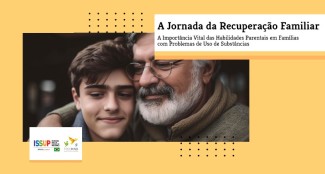The Power of Parenting Skills in Family Recovery

When the shadow of substance use looms over a home, parental skills assume a crucial role in building an environment of recovery and growth for the whole family. This article explores the importance of these essential skills, supported by studies and specialized sources, in the process of coping with and overcoming challenges faced by families affected by drug and alcohol abuse.
Influence of the Family Environment on Children's Well-Being
The family environment has a significant influence on the emotional and cognitive development of children. Studies, such as the one conducted by Masten et al. (1999), show that family support, healthy communication, and consistent discipline are decisive factors for the well-being of children in homes affected by harmful substance use.
Providing Stability and Emotional Security
Appropriate parenting skills provide an environment of emotional stability and security for children to face the adversities resulting from substance abuse. According to the Substance Abuse and Mental Health Services Administration (SAMHSA), establishing consistent routines and promoting healthy relationships are strategies that help families cope with the impact of addiction.
Prevention and Conscious Education
One of the pillars of parenting skills is the ability to educate and prevent. Parents who openly address the dangers of substance use can empower their children with relevant information and raise awareness about the risks associated with addiction. Studies such as Spoth, Randall, & Shin (2008) demonstrate that family prevention can be a powerful strategy against drug abuse among young people.
Support Network and Empathy
Building a strong support network is essential for families facing the problem of substance use. The parents' ability to seek professional help and connect with others in the same situation can be crucial for the success of family recovery. Research by the National Institute on Drug Abuse (NIDA) emphasizes the importance of social support in reducing stress and preventing relapses.
Building Resilience and Demystifying Stigma
Developed parenting skills can help build resilience in children. By facing the problem of substance use with empathy and understanding, parents demystify stigmas, promoting the strengthening of the family bond and acceptance of the situation, favoring the path of recovery.
Seeking Treatment and Support
An essential part of parenting skills is recognizing when it is necessary to seek treatment and professional support. Parents who take responsibility and seek help demonstrate their willingness to confront the problem head-on, ensuring a healthier environment for their children, as pointed out by the Substance Abuse Treatment Advisory from SAMHSA.
Establishing Boundaries and Positive Discipline
The establishment of clear boundaries and the application of positive discipline are elements that are part of parenting skills. This structure provides guidance and direction to children, promoting a safe and stable environment for healthy growth.
Towards a New Family Perspective
By developing appropriate parenting skills, parents can embark on the path of family recovery, offering a new perspective for the future. Recovery not only benefits parents but also creates opportunities for a healthier and promising life for the children, constituting a fundamental link for family flourishing.
Conclusion
The importance of parenting skills in families with substance use problems cannot be underestimated. They form the basis of recovery and healthy development for children, impacting the well-being and resilience of the entire family. With the pursuit of treatment, support, and continuous improvement of these skills, it is possible to face challenges and pave the way for a more promising future. Family recovery is a journey of overcoming, in which each step taken towards strengthening parenting skills is essential for building a healthy and nurturing home.
Sources:
- Masten, A. S., et al. (1999). "Resilience in development: Implications of the study of successful adaptation for developmental psychopathology." Development and Psychopathology, 2, 543-564.
- Substance Abuse and Mental Health Services Administration (SAMHSA). "Substance Abuse Treatment Advisory: Family Therapy Can Help." SAMHSA, 2019.
- Spoth, R., Randall, G. K., & Shin, C. (2008). "Increasing school success through partnership-based family competency training: Experimental study of long-term outcomes." School Psychology Quarterly, 23(1), 70-89.
- National Institute on Drug Abuse (NIDA). "Principles of Drug Addiction Treatment: A Research-Based Guide." NIDA, 2018.
- Substance Abuse and Mental Health Services Administration (SAMHSA). "Family-Centered Treatment for Substance Use Disorders." SAMHSA, 2018.
